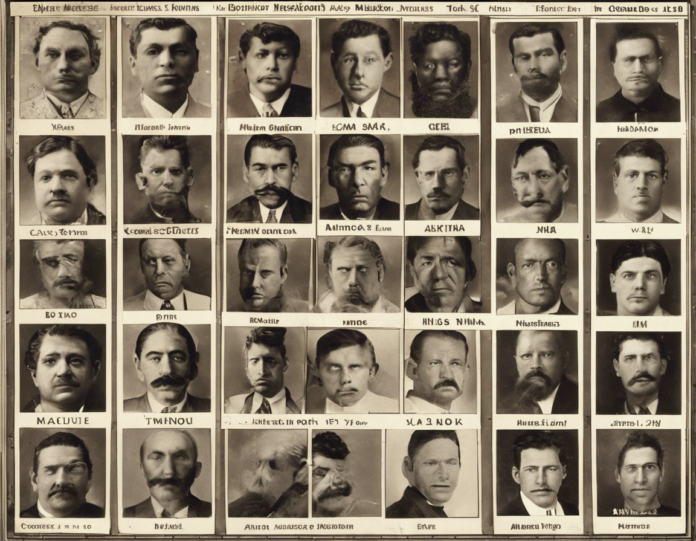Introduction
Racism exists in many forms, often perpetuated by the use of derogatory names and labels. In the case of Mexican names, there are stereotypes and biases that have been attached to certain names, perpetuating discriminatory attitudes towards individuals of Mexican descent. In this article, we will explore the phenomenon of racist Mexican names, unraveling the stereotypes associated with them and highlighting the importance of awareness and education in combating such prejudices.
Understanding Racist Mexican Names
1. Historical Context
The use of racist names towards individuals of Mexican heritage dates back to a long history of colonialism, imperialism, and discrimination. These derogatory names were often used to belittle and dehumanize Mexicans, serving as a means of asserting dominance and superiority.
2. Stereotypes and Misconceptions
One of the main reasons behind the existence of racist Mexican names is the perpetuation of stereotypes and misconceptions about Mexican culture and people. These stereotypes often paint Mexicans as lazy, uneducated, criminal, or undocumented immigrants, leading to the association of certain names with these negative traits.
3. Impact on Individuals
Being called a racist Mexican name can have a profound impact on an individual’s sense of identity and self-worth. It reinforces feelings of exclusion, alienation, and inferiority, leading to psychological distress and emotional trauma.
Examples of Racist Mexican Names
1. Pedro/Pedroza – Lazy and Unmotivated
The name Pedro or its feminine form Pedroza is often used as a derogatory term implying laziness and lack of motivation. This stereotype stems from the misconception that individuals with this name are inherently indolent and unproductive.
2. Maria/Maricón – Weak or Effeminate
The name Maria, when combined with the derogatory term “maricón,” is used to emasculate individuals, implying weakness or effeminacy. This stereotype reinforces harmful gender norms and undermines the masculinity of those bearing the name.
3. Juan/Juanito – Criminal or Untrustworthy
The name Juan or Juanito is sometimes associated with criminality or untrustworthiness, perpetuating the stereotype that individuals with this name are prone to illegal activities or deceitful behavior.
Combating Racist Mexican Names
1. Education and Awareness
One of the most effective ways to combat racist Mexican names is through education and awareness. By educating people about the harmful effects of stereotypes and biases, we can work towards dismantling discriminatory attitudes and promoting inclusivity and respect.
2. Celebrating Diversity
Rather than succumbing to stereotypes, it is important to celebrate the diversity and richness of Mexican culture. By embracing the varied identities and experiences within the Mexican community, we can counteract negative stereotypes and foster a sense of unity and solidarity.
3. Challenging Prejudice
It is crucial to challenge prejudice and discrimination whenever we encounter it. Whether it is in our schools, workplaces, or communities, we must speak out against racist attitudes and behaviors, advocating for a more just and equitable society.
Frequently Asked Questions (FAQs)
1. Are all Mexican names considered racist?
No, not all Mexican names are considered racist. It is the stereotypes and derogatory connotations attached to certain names that make them racist.
2. How can I support individuals who have been targeted with racist names?
Offering your support, understanding, and empathy can go a long way in helping individuals cope with the emotional impact of being called racist names. Be a compassionate listener and stand in solidarity with those affected.
3. What should I do if I witness someone using racist Mexican names?
Speak up and challenge the use of racist names. Educate others about the harm caused by such language and encourage them to choose their words more thoughtfully and respectfully.
4. Can reclaiming racist names be empowering?
Some individuals choose to reclaim racist names as a way of empowering themselves and taking back control over hurtful labels. However, this is a personal decision and may not be suitable for everyone.
5. How can we promote a culture of inclusivity and respect for all names?
By promoting awareness, fostering dialogue, and advocating for diversity and inclusion, we can create a culture that values all names and recognizes the unique identities they represent.
In conclusion, the prevalence of racist Mexican names underscores the need for greater understanding, empathy, and solidarity in combating discrimination and prejudice. By unraveling the stereotypes associated with these names and advocating for inclusivity and respect, we can work towards creating a more equitable and harmonious society for all.





